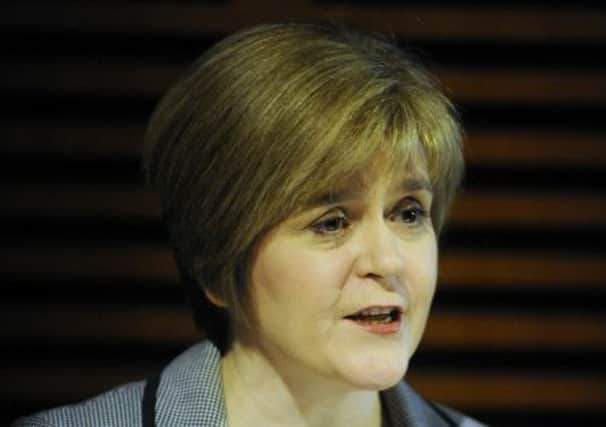One in seven people in Scotland lives in poverty


There has been a slight fall over the past year, but the Scottish Government says tens of thousands more youngsters could be plunged into poverty as controversial changes to the benefits system take root.
A total of 710,000 people – including 150,000 children – were classed as being in relative poverty in 2011-12, a report published by the Scottish Government says.
Advertisement
Hide AdAdvertisement
Hide AdIt means 70,000 fewer people including 20,000 youngsters were suffering compared to the previous year, although the reductions were not regarded as “statistically significant”.
The report also stated: “There has been no significant change in the number of people in relative poverty since 2006-07.”
While the 2011-12 statistics include the impact of some benefits changes, the report made clear that the figures “precede the more significant changes implemented in April 2013”.
Deputy First Minister Nicola Sturgeon said: “We know that the UK government’s welfare reforms are already having a significant impact on Scotland’s children, with further damaging changes still to take effect. These figures take into account the environment in 2011-12, but a number of changes have been made since then.
“These measures include changes to eligibility for child-tax credits and working tax credits which could, on average, mean that households will become around £700 a year worse off.”
Average household incomes have fallen over the past two years, going from £461 a week in 2009-10 to £436 in 2011-12, the statistics showed.
Labour’s social justice spokesman Drew Smith said the fall in average weekly pay has put an “additional burden” on families living in poverty.
“The SNP’s hands have not been tied and they have had many powers at their disposal to bring more families out of poverty,” Mr Smith said.
Advertisement
Hide AdAdvertisement
Hide AdPeople are described as being in poverty if their income is less than 60 per cent of the UK median income. That means a couple with two children are regarded as living in relative poverty if their income, before housing costs, is £392 a week.
Meanwhile, a single parent with two children is classed as being in poverty if they receive £308 a week or less while for a couple with no children the threshold is £256.
A total of 15 per cent of youngsters were living in poverty, the 2011-12 figures showed.
John Dickie of the Child Poverty Action Group (CPAG) also voiced concern.
“We need government to ratchet up its use of devolved powers to not just mitigate damaging UK policies but build on promises to, for example, widen free school meal entitlement, ensure working parents receive a Living Wage and improve access to childcare,” he said.